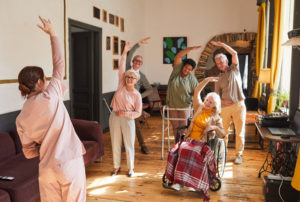
Texas Backyard Birds Guide for Seniors
While great spring weather is in full swing, Texas backyard birds are active as ever in our courtyards and outdoor spaces. As a result, we
Assisted Living & Memory Care

While great spring weather is in full swing, Texas backyard birds are active as ever in our courtyards and outdoor spaces. As a result, we

Spring is a season of renewal and rejuvenation, but for seniors, it can also bring some unique challenges. From changing weather patterns to seasonal allergies,

It can become increasingly difficult for elderly adults to maintain healthy diets during the aging process. Medications and physical impairments can cause complications with the

Whether you’re sending emails or shopping online it’s essential to keep safe while browsing the internet. Unfortunately, scammers tend to target the seniors due to

The Holidays have a magical way of bringing friends and family together. Here are some of our favorite pastimes for the whole house to enjoy.

The Holidays have a magical way of bringing friends and family together. Here are some of our favorite pastimes for the whole house to enjoy.

Here are some helpful tips to prevent isolation and loneliness for seniors and leave your loved ones feeling merry and bright throughout the holiday season.

The risk of falling and fall-related problems rise with age. Prevent the risk of falls with these 5 simple tips.